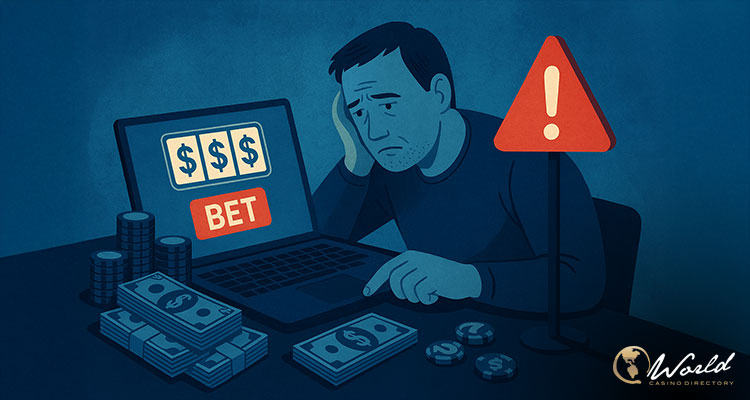The Northern Territory Racing and Wagering Commission (NTRWC) has penalised bookmaker BlueBet for “serious” breaches of responsible gambling obligations, finding that the company repeatedly incentivised a high-stakes VIP customer despite numerous signs of gambling harm. The regulator’s decision, published on 13 August 2025, detailed that the customer—identified as “Mr P”—deposited more than A$700,000 over a four-month period in 2021 and ultimately lost nearly A$570,000.
Bonus Bets and Ignored Closure Requests
Instead of intervening when clear “red flag behaviours” emerged, BlueBet awarded the customer VIP status and assigned him a dedicated account manager. According to the Commission, this manager earned commissions tied directly to the customer’s net gambling losses and showed no evidence of harm minimisation training.
The NTRWC described BlueBet’s conduct as “unacceptable” and “extremely concerning,” noting that the company appeared to prioritise profit retention over its legislated duty to protect customers from excessive gambling.
The Commission’s findings revealed multiple incidents where BlueBet offered inducements in circumstances that should have prompted intervention. On 30 September 2021, after losing $4,000 in a day, Mr P requested bonus bets from his VIP manager. When the request was initially declined, he asked to close his account. Two minutes later, the manager deposited $500 in bonus bets into the account instead, effectively encouraging continued play.
This was not an isolated case. The Commission documented two consecutive 11-hour gambling sessions in August 2021, during which the customer made 18 deposits totalling A$45,900, placed more than 450 bets, and repeatedly requested bonuses. Harm indicators—including binge gambling, late-night play, constant re-depositing, and failing to collect winnings—were all present, but the only responsible gambling action taken was a generic email sent hours into the first session.
BlueBet later claimed that a “responsible gambling check-in” was attempted after the customer’s credit card transactions failed, but the NTRWC found that the call was triggered by payment processing issues rather than genuine welfare concerns. The following day, the customer continued gambling heavily and again requested bonuses.
“At no stage did the account manager make mention that BlueBet was concerned about his wagering activities from a responsible gambling perspective,” the Commission noted. Instead, the manager “continued to encourage the complainant to wager with BlueBet through the promise of the provision of upcoming bonuses.”
Missed Opportunities and Regulatory Response
Mr P’s account was only closed in December 2021 after he texted his manager to say he had “lost everything” and wished he had been pulled up earlier.” By that point, he had gambled nearly $400,000 in the two weeks following the unanswered check-in call. The NTRWC concluded that BlueBet had “missed multiple opportunities for timely and appropriate action” and placed the burden of seeking help on the customer rather than acting proactively.
While the Commission acknowledged that the responsible gambling call eventually led Mr P to admit he was experiencing harm, it deemed the intervention substandard and too late to prevent significant losses. The regulator also ruled that Mr P’s bets during the relevant period were “not lawful” and ordered BlueBet to refund A$522,020, representing deposits minus withdrawals and adjustments.
Despite the scale of the losses, the Commission could only impose a maximum fine of A$53,380—less than 10% of the customer’s net loss. As The Guardian reports, Tasmanian independent MP Andrew Wilkie renewed calls for substantially higher penalties, stating that fines should “hurt the company financially and hurt them so much that they think, ‘heavens, we can’t afford that again.’”
BlueBet, which merged with gambling company Betr earlier this year and no longer operates independently, has maintained that it met its regulatory obligations at the time, citing responsible gambling prompts and direct contact in the months leading up to the account closure. The NTRWC’s decision, however, underscores ongoing concerns about VIP programs and the industry’s handling of high-value customers showing signs of harm.


